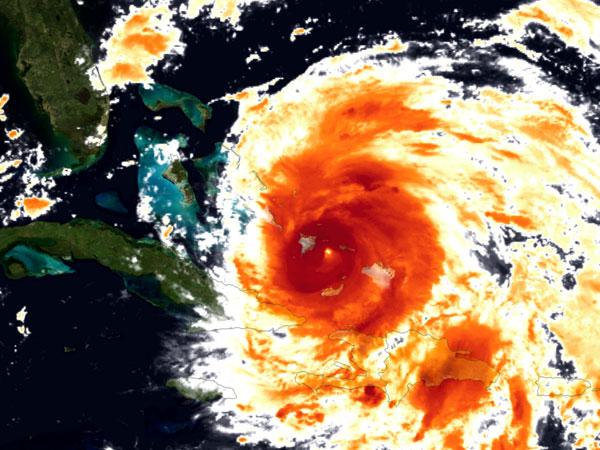
Eye of Hurricane Irene Spotted from Space

Get the world’s most fascinating discoveries delivered straight to your inbox.
You are now subscribed
Your newsletter sign-up was successful
Want to add more newsletters?

Delivered Daily
Daily Newsletter
Sign up for the latest discoveries, groundbreaking research and fascinating breakthroughs that impact you and the wider world direct to your inbox.

Once a week
Life's Little Mysteries
Feed your curiosity with an exclusive mystery every week, solved with science and delivered direct to your inbox before it's seen anywhere else.

Once a week
How It Works
Sign up to our free science & technology newsletter for your weekly fix of fascinating articles, quick quizzes, amazing images, and more

Delivered daily
Space.com Newsletter
Breaking space news, the latest updates on rocket launches, skywatching events and more!

Once a month
Watch This Space
Sign up to our monthly entertainment newsletter to keep up with all our coverage of the latest sci-fi and space movies, tv shows, games and books.

Once a week
Night Sky This Week
Discover this week's must-see night sky events, moon phases, and stunning astrophotos. Sign up for our skywatching newsletter and explore the universe with us!
Join the club
Get full access to premium articles, exclusive features and a growing list of member rewards.
The eye of Hurricane Irene, now a major storm with 115 mph (185 kph) winds, was spotted by infrared satellite sensors as the storm swirled over the Bahamas earlier today (Aug. 24).
After a brief dip in its power yesterday, Irene re-strengthened overnight and has now reached Category 3 status, making it the first major hurricane of the 2011 Atlantic season. Category 3 hurricanes on the Saffir-Simpson scale of hurricane strength have winds between 111 to 130 mph (178 to 209 kph).
The last hurricane hunter reconnaissance mission also measured a central pressure of 966 millibars a decrease from the previous flight, and further indication of the storms organization and intensification.
Irene's predicted path will take it up through the Bahamas, then up to the Outer Banks of North Carolina and along the coast of the Mid-Atlantic and Northeast states where it could finally make landfall. The storm would like weaken some in the cooler waters off the northern states, though it could still bring torrential rains and strong storm surge. [Related: Could New York City Handle a Hurricane?]
Rainfall in the Bahamas is expected to total between 6 to 12 inches (15 to 30.5 centimeters), with some isolated pockets of 15 inches (38 cm). Storm surge in the islands is expected to be as much as 7 to 11 feet (2 to 3.4 meters) above normal tide levels.
Irene is the first hurricane and first major hurricane for what has been forecast to be an active season . The National Oceanic and Atmospheric Administration (NOAA) updated its forecast on Aug. 4, predicting 14 to 19 named storms (which include tropical storms and hurricanes), seven to 10 hurricanes and three to five major hurricanes. An average Atlantic hurricane season will see 11 named storms, six hurricanes and two major hurricanes. August through October are the peak months of the Atlantic hurricane season.
- History of Destruction: 8 Great Hurricanes
- Video: Hurricane Irene Seen from Space Station
- Hurricanes from Above: See Nature's Biggest Storms
Get the world’s most fascinating discoveries delivered straight to your inbox.
 Live Science Plus
Live Science Plus











